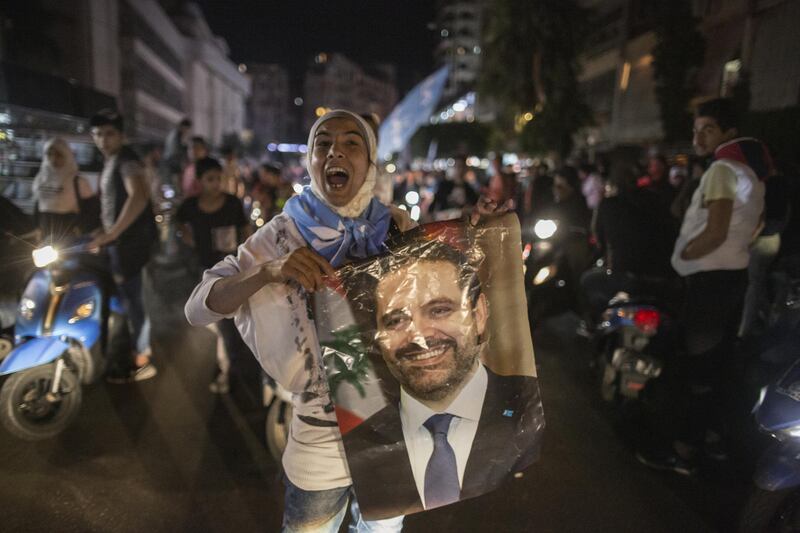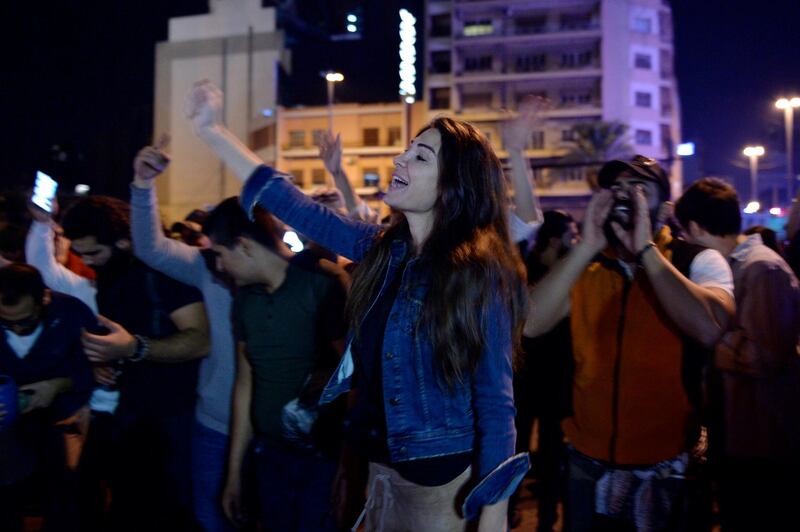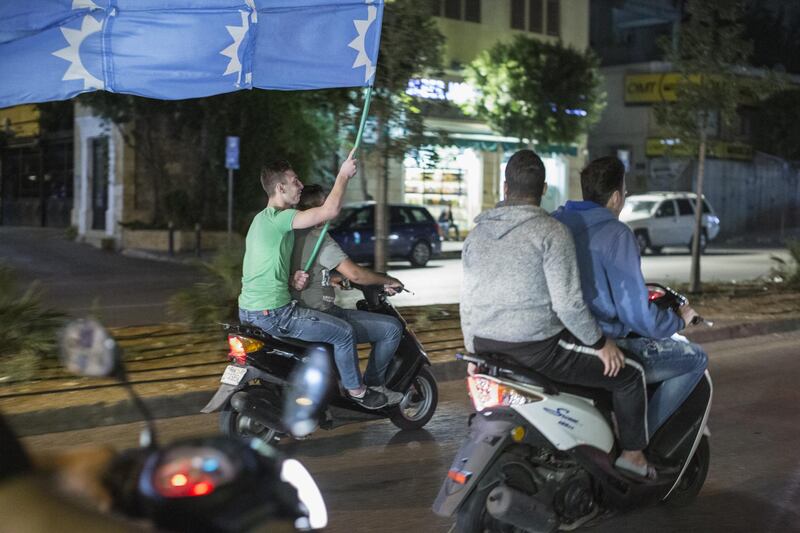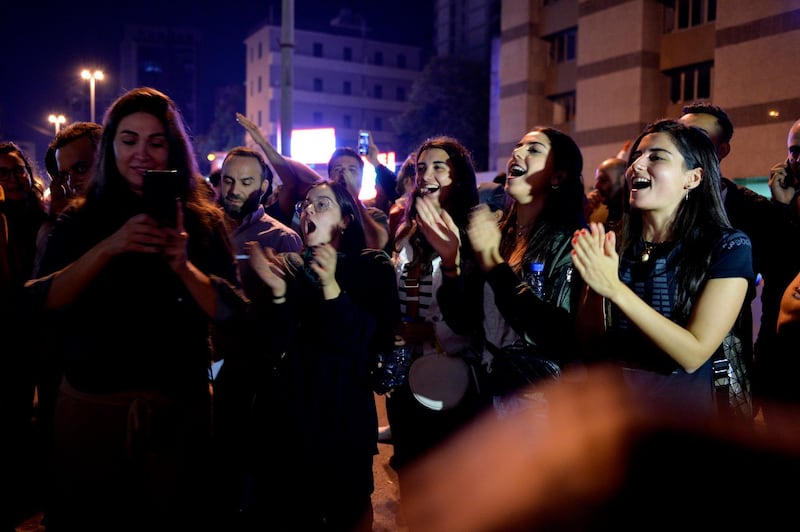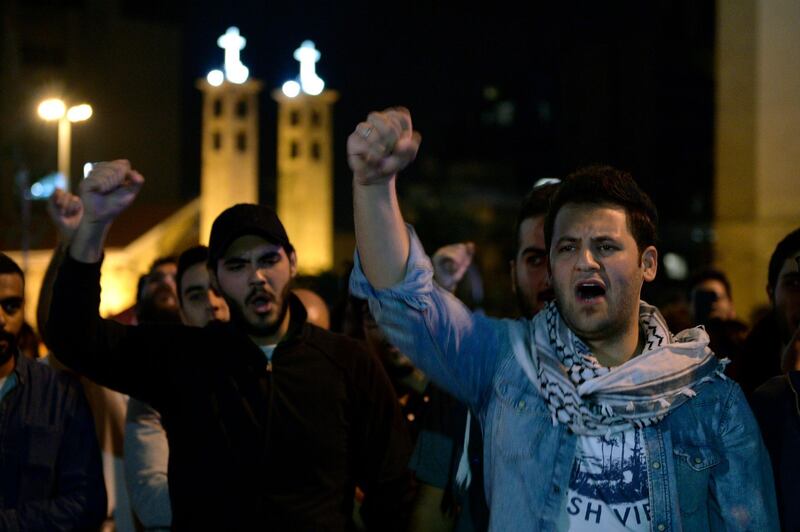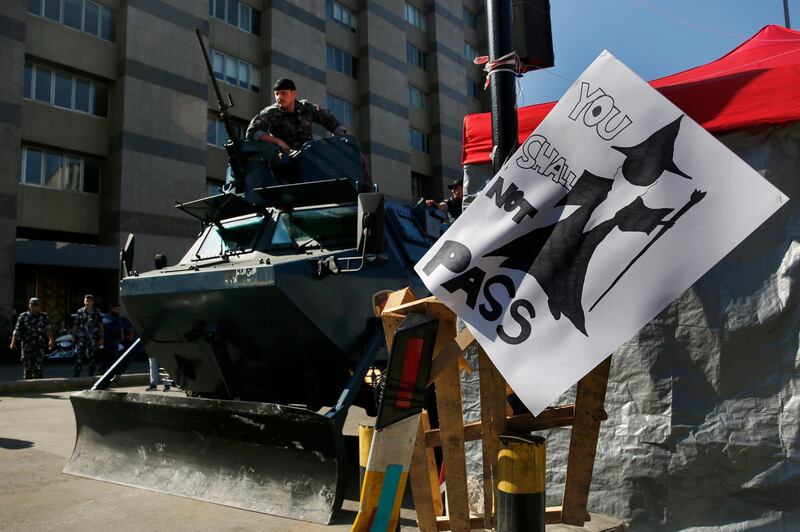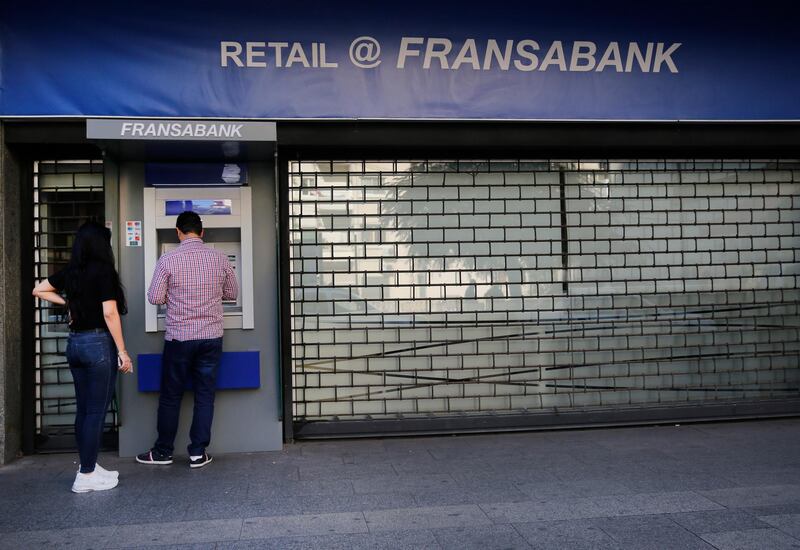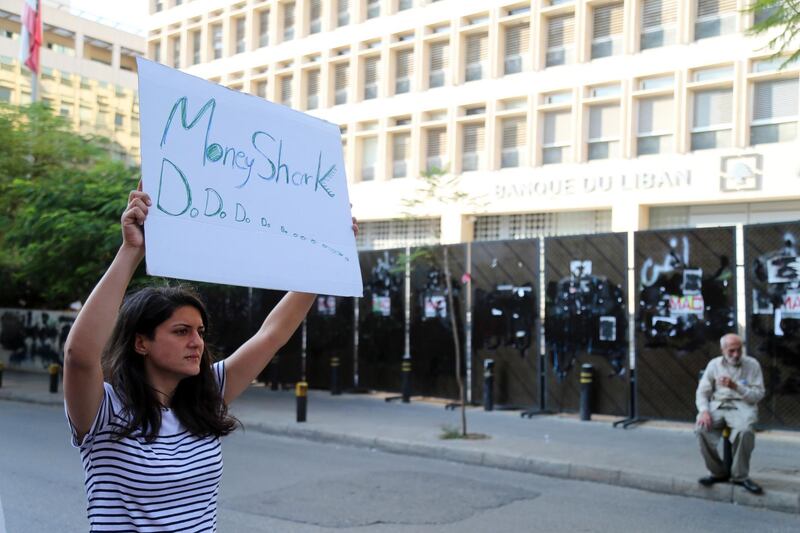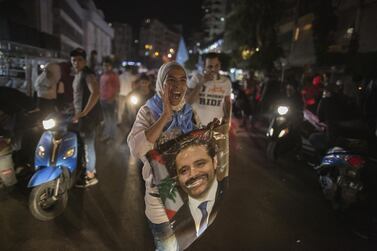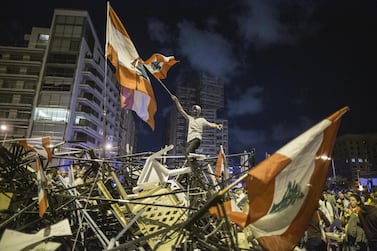Lebanese President Michel Aoun on Thursday said he was working on discussions to select a new prime minister.
On Thursday evening, Mr Aoun addressed the nation for the first time since Saad Hariri announced his resignation as prime minister this week, collapsing the government.
In his televised address, the president pledged to form a new government in which ministers would be chosen for their expertise, rather than political affiliation.
Mr Aoun said he intended to move the state away from its sectarian-based political system to a civil state, calling sectarianism a "destructive disease".
Hezbollah’s parliamentary bloc issued its first statement on Mr Hariri’s move, saying it wasted time that was crucial to pass anti-corruption measures and economic reforms.
Hezbollah leader Hassan Nasrallah said last week that he was against any reshuffle or change in the leadership.
As the streets of Lebanon started to clear on Wednesday and the country looked set to return to normal, with schools and banks reopening after two weeks of protests, thousands returned to the streets, sparking clashes with the army.
A mass march was held from the Central Bank in Hamra to Riad Al Solh outside the prime minister’s office in downtown Beirut.
People carried banners reading, "Return the stolen money," and the crowd chanted, "We want to topple the bank, we want to topple the regime."
Many of those who have been active throughout the demonstrations also returned, blocking the ring road that connects east and west Beirut just hours after they agreed to clear the important intersection.
North of Beirut, people returned to the Jal El Dib highway that had been cleared by the army earlier in the day on Wednesday. In Sidon and Tripoli and dozens of other areas, thousands also took to the main squares and streets to close intersections.
The army struggled to reopen roads. They used tear gas in Akkar's Abdeh in north Lebanon to try to push people back. But on Thursday, hundreds returned to the streets of the town to block the roads.
On the ring road that connects east and west Beirut, police and the army forcefully removed protesters and about 100 riot officers remained on the scene to prevent protesters returning. In Jal El Dib, officers negotiated with protesters to clear the street.
The Lebanese American University late on Wednesday reversed an announcement made hours before that it would restart classes on Thursday, after a call from the Education Ministry to reopen schools and universities.
The ministry also revised its order to reopen schools, saying it would depend on the local situation.
Caretaker prime minister's supporters come out in force
Supporters of Mr Hariri, the caretaker prime minister, took to the streets in huge moped convoys, honking their horns and joining in the now famous chant, "Kilon yani kilon", or everyone means everyone.
Until Thursday, protesters nationwide have almost exclusively waved the Lebanese flags. Political slogans, banners and posters were hardly seen.
But on Wednesday night, the white sun on a blue background of Mr Hariri's Future Movement was flying on the streets of Beirut.
He urged his supporters to co-operate with security forces after thousands took to the streets, angered that he was the only politician to resign after the 14-day mass nationwide rallies.
The new development adds a worrying sectarian dimension to the mass rallies that have so far ignored religion to bring all communities and people together.
Many of Mr Hariri’s largely Sunni supporters are angered that the Christian President and Shiite Speaker of Parliament are not resigning.
Hezbollah, the Iran-backed paramilitary and political force, is staunchly opposed to his move to stand down.
Parties across the spectrum on Thursday commented on the situation and suggested routes to reform.
In recent days, politicians have been conspicuously quiet during a fortnight of anti-corruption protests that have riled against every political party and leader in the country.
Lebanese Forces leader Samir Geagea, who withdrew his four ministers from the government on the third day of the protests, said the government's resignation was only the first step towards correcting the country’s course.
“The only step capable of correcting this path at the moment is to form a government completely different from its predecessors, without the problems of the existing parliamentary majority but including new, independent faces,” Mr Geagea said.
